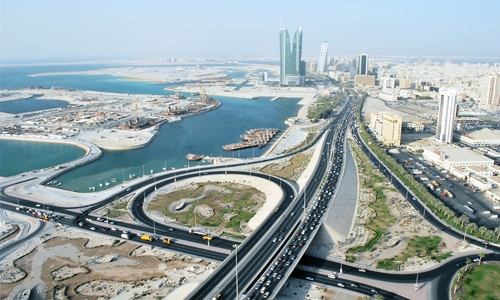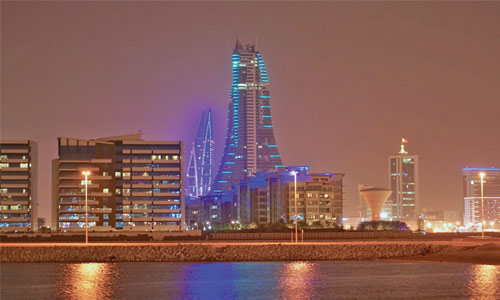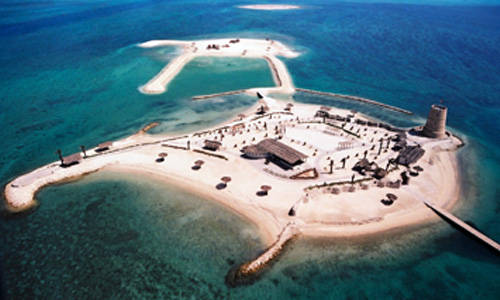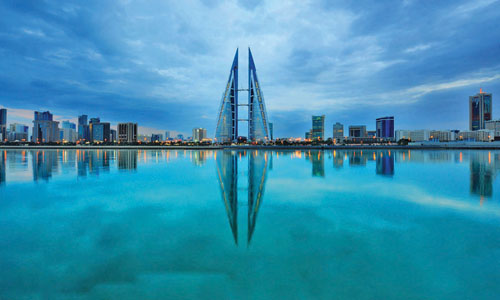Tourism, job growth drive retail sector expansion
Arising number of tourists combined with steady job growth is driving demand in Bahrain’s retail sector and spurring the development of a number of new retail centres, according to a report.
Some of the best performers in Bahrain’s current retail market are operators in the food and beverage segment, according to a recent report by real estate consultancy firm Cluttons, with demand in the retail sector supported by the tourism industry, particularly with visitors from Saudi Arabia.
Tourism potential
Bahrain’s tourism sector saw strong growth last year, with arrivals at 11.6m, up 11% from 2014, according to data released by the Economic Development Board (EDB).
The board has predicted the industry, which accounts for approximately 6% of GDP, will expand at a compound annual growth rate of 4.8%, generating revenue of $1bn by 2020, while arrivals will climb to more than 15m by 2018.
According to Jerad Bachar, executive director of tourism and leisure at the EDB, this increase is driving private and public investments across the economy, including the retail sector.
“There is investment throughout the tourism ecosystem including accommodation, technology, ground transportation, airport infrastructure and retail centres,” he said at an investment roundtable in April.
Ahmed Yusuf, CEO of Seef Properties, a property management company owning and operating three of the largest malls in Bahrain, also points to the pull of cinema.
“At the end of the day, families want to travel,” Yusuf told OBG. “Currently, cinema is one of the main attractions that bring Saudi families to the kingdom, giving us an edge over Dubai.”
Job growth
Bucking a regional trend of tighter job markets, Bahrain saw a 9% increase in employment opportunities year-on-year (y-o-y) in May, according to the results of a survey conducted by online jobs portal Monster.com.
This uptick in employment, despite the slow pace of global economic recovery, is expected to positively impact consumer confidence and spending patterns in the second half of this year.
Project pipeline
The anticipated rise in consumer demand is being met through a steady flow of new retail space.
Initial tenders have recently been issued for piling works in the development of Marassi Galleria, part of a large-scale waterfront mixed retail, residential and entertainment project. The complex will add 250,000 sq metres of retail space to Bahrain’s stocks by 2022, with most of the shopping space to be completed by 2019, according to Maher Al Shaer, CEO of Diyar Al Muharraq and managing director of Marassi Al Bahrain.
Bahrain has also seen an increase in the rollout of smaller community-based retail outlets, with neighbourhood shopping centres merging with food and beverage services, according to a report issued by property consultancy firm CBRE in early June. In the destination mall segment, The Avenues on the Manama Corniche at Bahrain Bay set to open early next year will offer 38,000 sq metres GLA and provide a range of facilities, such as waterfront dining, a running track and gym, and a traditional souk, the report said.
Cluttons also reports that the retail market may be approaching a supply-demand equilibrium, as either the entry of new developments slows or rental rates dip.
Possible growth constraints
Recent projections put Bahrain’s economic expansion at between 2.2% and 2.9%, the latter estimate being in line with last year’s rate of growth.
Consumer sentiment in Bahrain is somewhat muted, according to the latest survey of confidence levels by online job recruitment company Bayt, which has prompted the expansion of many Bahraini retailers into the much larger market next door, Saudi Arabia.
Although consumer confidence in Bahrain was also down marginally from the second half of 2015 to the same time period last year, Bahrain retailers are expecting to see similar results as last year, according to Hamad Fuad, director at Bahrain-based Junaid Perfumes. A key factor that might curb consumer spending is rising inflation, which reached 3.8% y-o-y in April, its highest level since December 2013, which may well be set to rise as a planned value-added tax is rolled out across the region. (Oxford Business Group)
Related Posts





